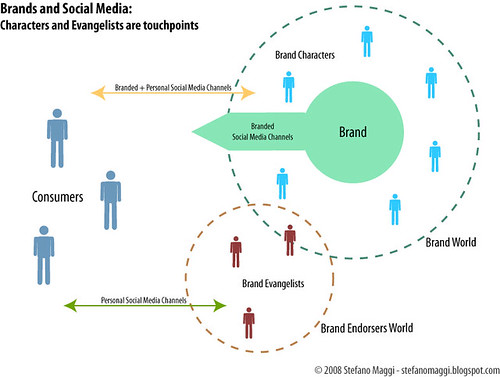Social media engagement is the pinnacle of online success.
It means you have fans, just not customers.
And it means that you have a passionate, core audience that will basically do your marketing for you.
But here’s the problem…
It doesn’t just happen.
And there’s no roadmap or set of easy-to-follow instructions that ensure social media success.
But there are some clear warning signs that can tip you off if you’re heading in the wrong direction.
Here are 3 factors that every failed social media strategy has in common.

Image courtesy of stefanomaggi
Factor #1: Haphazard Updates
The first warning sign to a poor social media strategy is that you’re being reactive, instead of proactive.
And the best place to look is at your own posting schedule.
Because when you’re updating social media accounts for business purposes, you need to satisfy clear goals and objectives.
So you’re not just telling people what you’re up to, or what sale you have going on. But you’re following a publishing schedule that increases attention and awareness, and improves retention.
And it doesn’t necessarily matter how many times you update your Facebook page, or the latest new feature on Pinterest.
Instead you have to back up to 30,000 feet, pick a target, and then reverse-engineer how you’re going to get there.
For example, say you wanted to drive social media sales. Your goal is figure out milestones, like promotions and contests, that will build engagement before the holidays. This way you can get people’s attention and cut through the noise.
Then when it comes time to promote your latest sales and deals, you’ll have an audience that’s interested in hearing what you have to say.
Factor #2: Missing Pieces
A good social media strategy is made up of two parts:
- Growth management
- Community management
One without the other doesn’t do you much good.
For example, if you’re good at growth, but have no customer engagement, then people won’t take action and buy.
And if you have good engagement, but no systematic growth, then you’ll never have enough prospects coming in to grow your business.
But the big problem is that most people who’re responsible for social media are good at one, and not the other.
So “engaging in the conversation” is great for building rapport. But it won’t scale your growth.
This is why building cross-functional teams and getting the entire organization on the same page are so important.
Unfortunately, it rarely works like that. The more common scenario is a small team in Marketing or Communications who has sole responsibility. And everyone else is banned.
Or worse, it’s completely outsourced to a vendor.
In which case you’ll never have a true, successful online presence.
Here’s why…
Factor #3: Brand Integrity
The crux of a successful social media strategy lies with your brand itself.
Because this collection of intangible benefits creates promises, expectations, and trust.
These ultimately dictate how you run your business, provide your product or service, and the personnel you hire. And the reasons someone eventually decides to buy from you (or your competitor).
All of which creates an Achilles’s Heel for your social media strategy.
For example, United Airlines will never have a successful social media presence. Sure, they might have a lot of Facebook fans (because millions of dollars and mass-media advertising can create a lot of awareness).
But they’ll never have true, loyal zealots who give them repeat business (which increases the lifetime value of a customer) or spreads their positive experiences like wildfire (which decreases the cost of customer acquisition).
Because every few months they’ll make headlines by breaking your guitar, kicking a service dog, losing a 10-year old girl, and disrespecting a disabled war veteran.
Social media engagement has little to do with your Klout score or the number of Twitter followers.
And it depends entirely on the underlying causes like how you conduct business.
So the quickest way to improve your social media strategy, is to fix your brand integrity and company.
Otherwise you’re just playing from behind.
And whoever’s responsible for social media will be stuck reacting to things outside of their control.


